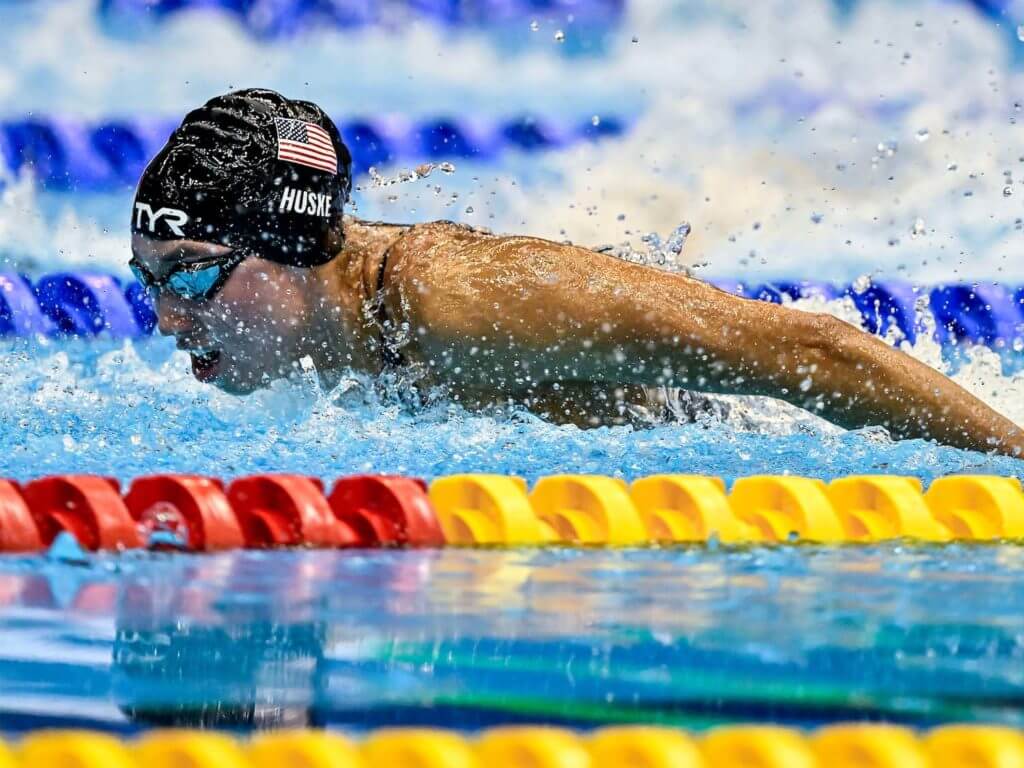The Final 15 Meters: Where Races are Won

The Final 15 Meters: Where Races are Won
Something the Olympics has made abundantly clear is that races are won and lost in the back half. Over and over again, we saw races where a swimmer had what seemed like a bulletproof lead over the rest of the field, only for someone to blast home the last 10 to 15 meters and snatch the gold medal.
Kicking things off, a showdown between Americans Gretchen Walsh and Torri Huske in the 100-meter butterfly. Walsh was out fast and had a commanding lead at the 50-meter mark. Despite her phenomenal underwaters off the turn, she faded towards the end. Heading into the last 15 meters it was Walsh who led, but Huske was closing. As they headed into the wall, it was Huske who came blazing home to out-touch Walsh for the gold.
In the men’s 200 meter butterfly, Hungarian Kristof Milak got off to a quick start and continued to build his lead heading into the turn at the 150-meter mark. However, even his cushy lead was not enough to fend off Léon Marchand. Marchand had sensational underwaters off his last wall which allowed him to almost close the body-length gap Milak had built. From there, as Milak began to tighten up in the last 10 meters, Marchand made another move and blew past Milak to claim his second gold of the meet.
The men’s 200 meter freestyle was thrilling, as it was dead even for most of the race. In the end, it came down to who made a move at the right time within those final 15 meters. The few swimmers who were out the fastest at the 100-meter mark were not the ones who finished on the podium. Within the last 15 meters, America’s Luke Hobson, Romania’s David Popovici, and Great Britain’s Matt Richards had final surges to land on the medal stand, with Popovici nailing a perfect finish. The difference between first place and third place .07, Popovici the gold medalist.
Lastly, in the women’s 100 meter backstroke, Regan Smith, Katharine Berkoff, and Kaylee McKeown were even into the turn at 50 meters. As usual, Smith had fantastic underwaters to give her a slight advantage after the turn. However, McKeown was strongest in the closing meters to go by Smith en route to defense of her gold from Tokyo.
These are just a few examples of the races that were won in the last 15 meters, and they stress the importance of the final stages of the race. In those moments at practice, when everything hurts and you want to quit, that is when you increase your effort. Day in and day out these champions put in the work on those sets that specifically target the closing meters of a race.
It is the trust that they have in that training that propels them to excel in the final stretch. They trust their bodies to execute the finish exactly the way they have trained. On top of that, those who have the mental fortitude to stick to it are the ones who will prevail. Digging deep, pushing through, and continuing to surge forward even when the tank is empty is what can make an Olympic champion, a state champion, a successful swimmer.
We have seen this time and again.



